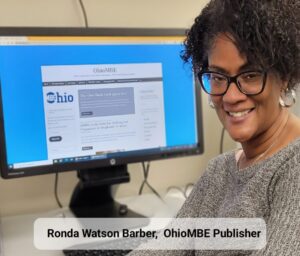We at OhioMBE are committed to supporting minority businesses. The Wall of Shame highlights those who have harmed these businesses, going against our values of fairness and equality. This page reminds us of the challenges minority businesses face and our mission to ensure fair business for everyone.
Columbus City Council:
Shannon G. Hardin
Council President
Chair: Finance; Rules & Reference
Rob Dorans
President Pro Tem
Chair: Public Utilities; Zoning; Workforce Development; Building and Zoning Policy
Nicholas J. Bankston
Council Member
Chair: Economic Development; Small & Minority Business; Technology
Lourdes Barroso de Padilla
Council Member
Chair: Public Service & Transportation; Neighborhoods and Immigrant, Refugee, and Migrant Affairs; Veterans, Senior, and Disability Affairs
Emmanuel Remy
Councilmember
Chair: Public Safety; Environment; Administration
City of Columbus Office of Diversity & Inclusion
As OhioMBE, dedicated to promoting fairness and equity in business opportunities, we announce the placement of the City of Columbus Office of Diversity and Inclusion (ODI) on the OhioMBE Wall of Shame. This decision is informed by the financial data from 2019 through the first half of 2023, which paints a troubling picture of disparity in earnings and opportunities for Black women-owned businesses in Columbus, particularly in high-value sectors like construction.
Despite the presence of certification programs and initiatives designed to foster diversity and inclusion, there’s a glaring disparity. For instance, in the first half of 2023, Black women-owned businesses earned just over $2 million, while their White counterparts earned nearly $14 million. This trend is consistent with data from previous years, showing a continuous gap:
-
2023 (Q1 & Q2):
- Black Women: $2,150,317.45
- White Women: $13,705,579.39
-
2022:
- Black Women: $2,779,355.35
- White Women: $18,660,709.68
-
2021:
- Black Women: $3,207,669.47
- White Women: $12,585,513.46
-
2020:
- Black Women: $1,896,468.62
- White Women: $15,974,550.47
-
2019:
- Black Women: $1,989,970.68
- White Women: $11,328,120.29
This data is not just a collection of numbers but a stark representation of missed opportunities and unfulfilled potential for Black women entrepreneurs. The irony is that initiatives meant to level the playing field are benefiting those already in advantageous positions. Black women, one of the most historically marginalized groups, are still struggling for equitable recognition and success.
The City of Columbus and the ODI must critically re-evaluate their approaches. The appointment of a Chief Diversity Officer without direct supplier diversity experience and the closure of the construction planroom during a construction boom are decisions that have hindered, rather than helped, minority businesses.
Furthermore, the implementation of the disparity study’s recommendations appears symbolic rather than substantive. Questions linger about whether the ODI is genuinely committed to these recommendations, particularly in light of decisions like including non-citizens in the certification program.
The City of Columbus and the ODI need to realign their actions with their stated goals of equity and justice. This involves not only providing access but also actively ensuring that Black women-owned businesses are receiving significant opportunities and resources. Open and transparent dialogue with the affected communities, understanding their barriers, and involving them in solution creation are vital steps towards real change.
The placement of the City of Columbus ODI on the OhioMBE Wall of Shame will remain until there is tangible evidence of improved outcomes for Black women-owned businesses. It is time for the city to demonstrate its commitment to building a stronger, more inclusive economy where the diversity and talent of all its citizens are not just recognized but actively supported.
